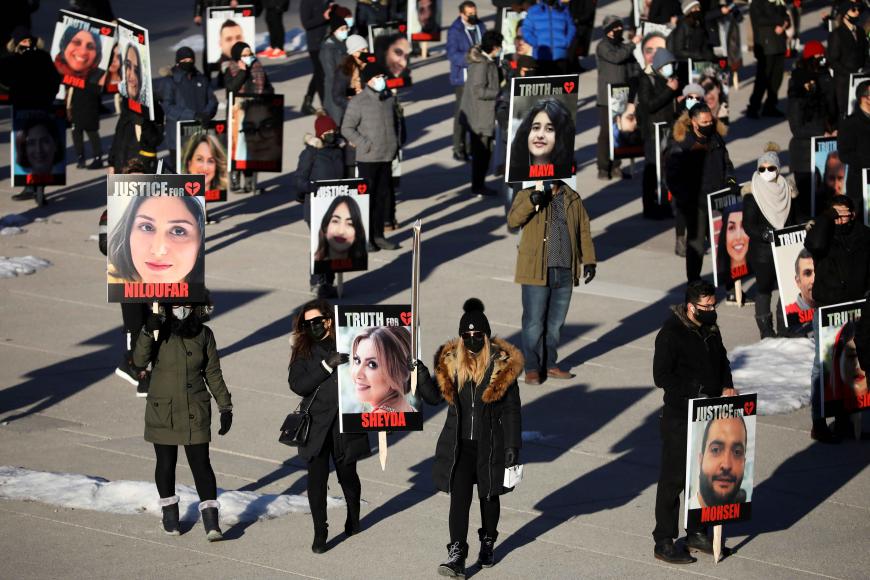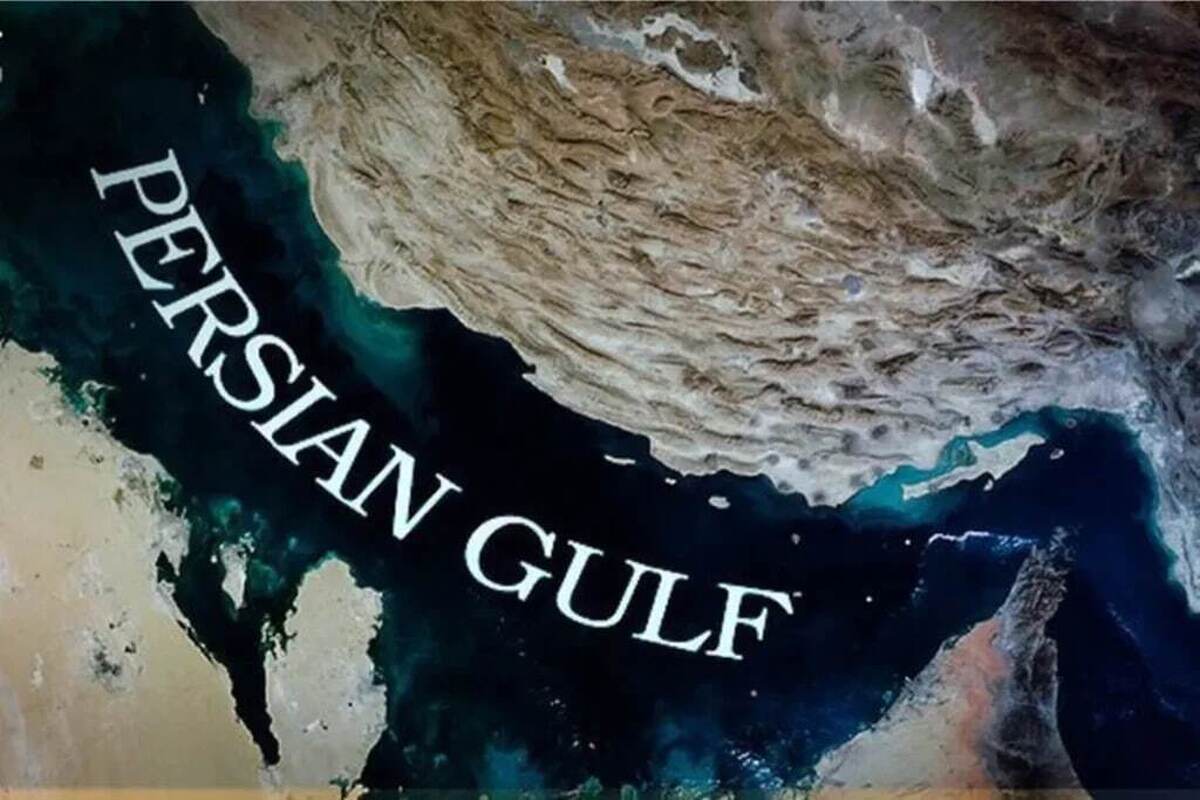
Iran: Ukraine Airline Victims’ Families Harassed, Abused
Iranian authorities have engaged in a campaign of harassment and abuse against families of people killed in the Iranian Revolutionary Guard’s downing of Ukraine International Airlines Flight 752 in January 2020, Human Right Watch said today. On April 6, 2021, Iranian authorities announced that they had indicted 10 people for their role in the incident but have not provided any public information about their identities, ranks, or the charges against them. Governments participating in the Flight 752 investigation should support family members of victims in pursuing a path for justice and accountability.
From October 2020 to January 2021, Human Rights Watch spoke to 31 family members of victims and people with direct knowledge of the authorities’ treatment of the families. They said that Iran’s security agencies had arbitrarily detained, summoned, abusively interrogated, tortured, and otherwise mistreated victims’ family members. The agencies also failed to return victims’ possessions to their relatives and interfered with burial and memorial gatherings in an apparent attempt to curtail efforts for accountability.
“Iran’s Revolutionary Guard killed 176 people without a shred of accountability, and now Iran’s brutal security agencies are abusing victims’ family members to squash any hope for justice,” said Michael Page, deputy Middle East director at Human Rights Watch. “Rather than attempting to regain people’s trust through a transparent investigation and redress for the families, the authorities are again silencing accountability efforts.”
On January 3, 2020, a US drone strike in Iraq killed Qassem Soleimani, the commander of the Quds Force, a branch of Iran’s Islamic Revolutionary Guard Corps (IRGC). The killing was followed on January 8 by Iranian missile attacks against a US base in Iraq and Iran’s shooting down of a civilian jetliner close to Tehran’s Imam Khomeini international airport. After several initial denials, the Armed Forces Central Command admitted on January 11 that the Revolutionary Guards had “mistakenly” shot down the passenger jet, killing all 176 passengers and crew on board.
Iranian authorities said that “human error” by a missile operator led to launching two surface-to-air missiles at the plane. But the authorities have not disclosed critical evidence supporting the claim and have not provided any details of their judicial investigation. The cabinet announced that it had allocated US$150,000 to compensate the family of each passenger.
On March 17, Iran’s Aircraft Accident Investigation Board published its final report on the incident in which it said, based on information provided by the military, that Iranian missiles were launched at the plane due to a 105-degree miscalibration of the launcher’s radar. The report did not clarify inconsistencies in the Iranian government’s findings raised by various independent observers, including the United Nations special rapporteur on extrajudicial executions in a detailed letter to the Iranian government in December.
The foreign affairs and transport ministers of Canada, the intended destination of most of the passengers, said in a statement that, “The report makes no attempt to answer critical questions about what truly happened. It appears incomplete and has no hard facts or evidence.” On May 20 a Canadian court ruled in a civil lawsuit that “on the balance of probabilities … the missile attacks on Flight 752 were intentional and directly caused the deaths of all onboard.”
After Iranian authorities admitted they shot down the plane, protests broke out in several Iranian cities. The security forces responded with rubber bullets, pepper spray, and tear gas, Amnesty International reported. Over the past year, courts have sentenced at least 20 people in connection with their participation in protests. At least three more participants are currently on trial.
The authorities have also harassed and intimidated victims’ family members. Family members said that in several instances, the authorities interfered with burial and memorial services, pressuring families to accept the government’s “martyrdom” status for their loved ones, and published photos and videos without the permission of the families at services.
At least 16 people said that security agencies threatened them not to participate in interviews with foreign media or had followed or summoned their relatives or friends who attended memorials and filmed those attending these events. In some cases, security forces interrogated or detained family members for several hours.
In at least one case, the authorities tortured a person in custody. In another case, plainclothes officers asked to meet a family member who had spoken against authorities’ conduct at a public place and threatened that person with prosecution. In at least three cases, the authorities threatened family members with “consequences” unless they removed social media posts critical of the government’s lack of accountability.
One family member said that half an hour before a memorial event, intelligence authorities called and told them to cancel it. “We decided not to cancel the gathering,” the family member said. “But you can imagine how stressed every single moment of it was because we were worried about someone saying something political [and getting them in trouble with authorities].”
Several of those interviewed said that the authorities returned important documents from the victims, but did not return any valuables, such as jewelry and electronic devices. Videos and photos published two days after the crash show bulldozers demolishing the site before authorities had accepted responsibility for downing the plane, raising concerns that they failed to secure evidence that was then destroyed or left unusable for investigations or legal proceedings.
Under international human rights law, Iranian authorities are obligated to investigate and prosecute cases of unlawful deprivation of life, impose appropriate punishment, and provide victims and their families full redress. Iranian courts, and particularly revolutionary courts, regularly fall far short of providing fair trials and use confessions likely obtained under torture as evidence in court.
Over the past year, Iranian courts have sentenced to prison at least 20 people who participated in the protests that broke out after authorities’ admission of downing of the plane. Iranian authorities should immediately and unconditionally release those who have been sentenced for their peaceful dissent.
“Iranian authorities have continued to harass and pressure people speaking out publicly about the government’s mishandling of the investigation and demands for accountability,” Page said. “All governments involved in the investigation of downed Flight 752 should ensure that the rights of victims’ families are protected to pursue genuine accountability, including holding those responsible criminally liable and providing families with adequate compensation.”



